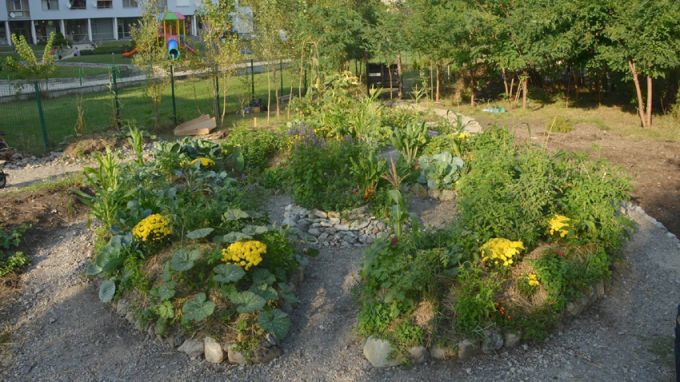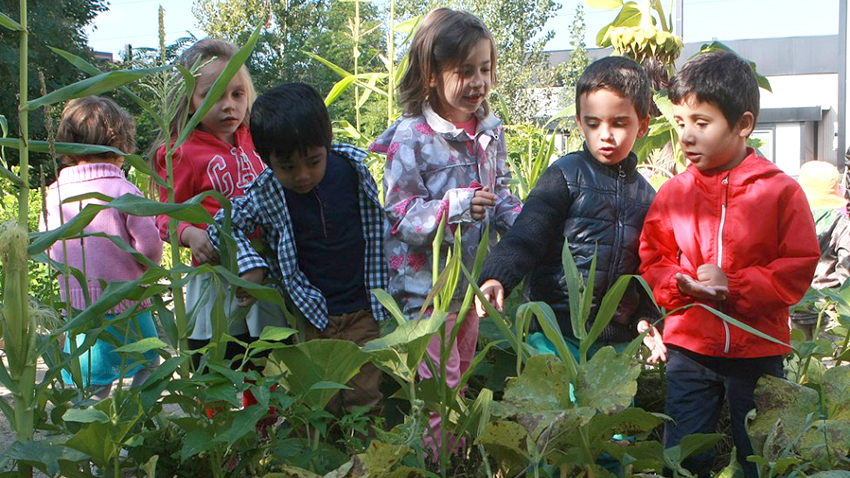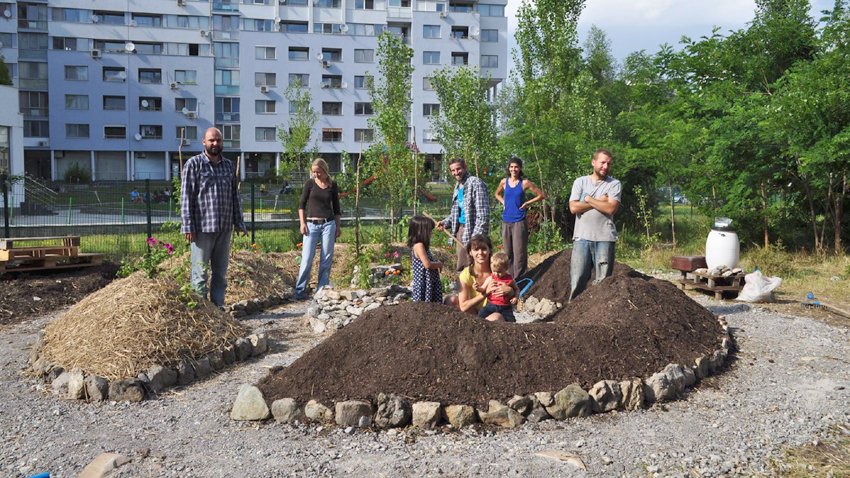 3
3
Is there room for urban farming in this country, especially in the bleak and neglected spaces in-between apartment blocks? To check this theory out, a group of young enthusiasts brought together by friendship, an enterprising spirit and a wish to restore the natural bond with the land, decided to conduct an experiment.
It all began some 18 months ago, when they decided to clean and freshen up some of the green spaces in Sofia’s new residential area Vitosha where they live and to make out of them a cheerful place for children to play and for adults to simply take a break in. They turned to the regional administration for help and were told to use a plot of land, city property, spreading over almost half a hectare and earmarked for renovation. They won a project under the Sofia municipality Green Sofia programme and were provided with tools, benches, trash cans, trees and flowers. In exchange, they had to put in volunteer work and popularize the idea among their neighbours. And even though neighbour communication has always been a challenge in our part of the world, especially when practically everyone is a newcomer to the neighbourhood, many took to the idea and set down to work. So, by their concerted efforts last autumn a splendid garden appeared, the wonder of the neighbourhood. The interest and the support of the local people inspired the young people to take the next step and create the first in Bulgaria organic garden on common land. In this oasis of biodiversity there are tomatoes, chili peppers, maize, sunflower, pumpkins, fragrant herbs… The garden is cared for mostly by young people aged 25 – 35 of all kinds of professions: software engineers, architects, designers, photographers… The garden’s ardent fans include a Frenchman who has been living in Sofia with his family for some years. Vera Petkanchin is one of the people who got the ball rolling and helped the idea come to fruition. She has graduated international relations and now works for Junior Achievement, Bulgaria, an NGO that promotes entrepreneurship among school goers. But how are city folk like them coping with farming? The answer from Vera:
 “Actually, we don’t have the knowledge needed. But we make up for that with our dedication to experimenting and seeing how things turn out. Our garden is the first such garden in Sofia but also in Bulgaria – what we are doing is urban farming on common land instead of in someone’s back garden. It is so different to be doing something that will benefit the community in a given neighbourhood. In our case, we had a great many people from the neighbourhood, but also from other parts of the city joining in, there were a lot of young families with their children who took great care in planting the saplings. Some of the children have an express tree they have been caring for. When we were making the compost they were really curious to find out that this was not mere vegetable waste but something that comes in very useful when you use it as soil fertilizer.”
“Actually, we don’t have the knowledge needed. But we make up for that with our dedication to experimenting and seeing how things turn out. Our garden is the first such garden in Sofia but also in Bulgaria – what we are doing is urban farming on common land instead of in someone’s back garden. It is so different to be doing something that will benefit the community in a given neighbourhood. In our case, we had a great many people from the neighbourhood, but also from other parts of the city joining in, there were a lot of young families with their children who took great care in planting the saplings. Some of the children have an express tree they have been caring for. When we were making the compost they were really curious to find out that this was not mere vegetable waste but something that comes in very useful when you use it as soil fertilizer.”
The young farmers reject any kind of chemical fertilizers, herbicides or pesticides and combine different crops, a process known as companion planting. “We have given up planting a given crop in one bed and another – in the next. We plant them together because the idea is that their positive qualities will interact with each other and ward off pests,” Vera explains. Here is more about the principles of permaculture, a method they employ:
“We used a method known as Hügelkultur or elevated bed. It comprises different layers with thick cardboard at the bottom, then thick branches, with soil, grass and twigs on top, and all this covered in straw. The idea is for the thicker branches to get well drenched in water which will gradually be seeped into the other layers – this minimizes the irrigation. When the bed is elevated and soil, free of seeds or weeds is used, there is no need to hoe, dig or weed the plot.”

But there are other interesting things to be found in the organic garden, like the… “beneficial insects hotel”.
“This structure is like a miniature house with rolled-up paper inside, as well as dry twigs and sticks,” Vera explains. “It is a place where beneficial insects can take cover in winter, because it is warmer inside. Making the “hotel” was something the children who joined in, found really exciting.”
The amateur gardeners say their crops are infinitely tastier and purer than what you can buy at supermarkets. They are yet to have their produce tested, so as to be absolutely sure of its high-quality. And they expect the biggest crop to be of pumpkins. So, they are planning on organizing a pumpkin festival and have been promoting it on Facebook; that in turn triggered off interminable discussions of the organic garden.
“What matters more than the crops we are getting is that this is a process that brings people together,” Vera says. “This is a social capital that is very difficult to accumulate and it is high time we realized that if we want something to be done, it is in our own hands.”
English version: Milena Daynova
The Bulgarian national minority in Albania is one of the largest in the country, according to data from the latest official population census. A total of 7,057 individuals identified as Bulgarians. For comparison, 23,000 people identified as Greeks,..
From today, residents of Stara Zagora, young and old, can send their letter to Santa Claus. A letterbox has been set up in the foyer of the city's State Puppet Theatre to collect messages for Father Christmas. The cultural institution guarantees that..
A Christmas tree with Bulgarian decorations has been placed in a central location at the Griffin Museum of Science and Industry in Chicago. For the fifth consecutive year, Bulgarians living in Chicago crafted the lavish decoration of the Bulgarian..
Over 3.5 million Ukrainians have arrived in or passed through Bulgaria since the beginning of the war. Nearly 200,000 people have found temporary..
At the Bulgarian Embassy in London, Prof. Bettany Hughes presented excerpts from the new BBC series - Wonders of Bulgaria. Prof. Bettany..
An innovation for the treatment of diabetic foot ulcer using the patient's own tissue and artificial intelligence has been implemented at the University..

+359 2 9336 661
